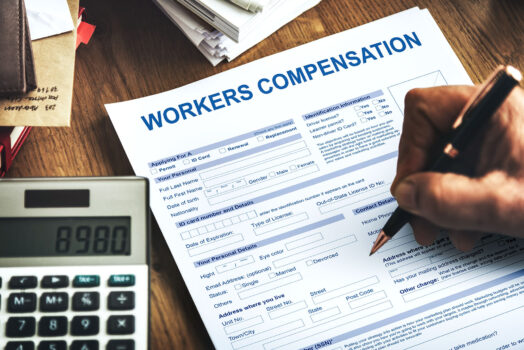In the complex world of hospitality, hotel insurance stands as a crucial but often burdensome expense. With a variety of risks ranging from natural disasters to liability claims, understanding and managing the costs of hotel insurance is vital for hotel owners and operators. This article delves into the intricacies of hotel insurance coverage, the challenges in the insurance market, factors influencing costs, strategies for managing these costs, and the future outlook of hotel insurance.
Understanding the Costs & Coverage of Hotel Insurance
Hotel insurance is a multi-faceted necessity in the hospitality industry, designed to safeguard assets and mitigate liabilities across various operations. Each type of insurance addresses specific aspects of hotel management and risks, forming an essential protective framework for business continuity and financial stability. Major types of hotel insurance include:
Commercial General Liability Insurance
Every hotel needs robust protection against the risks associated with guest injuries or damages that occur on the premises. Commercial General Liability Insurance is foundational, providing coverage for bodily injury and property damage claims from third parties. This type of insurance is crucial because hotels continuously host guests, conduct events, and manage facilities that could become sites of accidents.
Commercial Property Insurance
Hotels represent significant investments in real estate and capital. Commercial Property Insurance safeguards this investment by covering the buildings and the contents within from disasters such as fires, storms, and other significant events. It’s important to note, however, that damage from certain natural disasters like floods and earthquakes typically requires additional, specific coverage.
Commercial Auto Insurance
Hotels that provide transportation services or operate vehicle fleets need Commercial Auto Insurance. This policy is vital for covering liabilities and damages from accidents involving hotel-owned vehicles. Effective coverage protects the hotel from considerable financial losses and supports continuous operation, even in the face of vehicular mishaps.
Equipment Breakdown Insurance
This insurance is vital for the functioning of large hotel operations which rely on various mechanical and electrical equipment. Equipment Breakdown Insurance covers unexpected malfunctions, which can be critical to continuing operations without interruption, such as failures in HVAC systems or kitchen appliances.
Workers Compensation Insurance
Workers Compensation is legally required in many areas and covers employees who might be injured on the job. This policy provides medical benefits and wage replacement to employees hurt during employment, ensuring compliance with legal standards and protecting the hotel from related lawsuits.

Cyber Liability Insurance
As hotels increasingly use digital technologies for guest management and bookings, the risk of cyber threats grows. Cyber Liability Insurance provides a safety net against the financial repercussions of data breaches, cyber-attacks, and other related security incidents. This coverage is becoming indispensable as hotels handle a large amount of sensitive guest information.
Liquor Liability Insurance
For hotels with bars or that serve alcohol at events, Liquor Liability Insurance is critical. This coverage protects the hotel against claims that arise from the service of alcohol, such as accidents or injuries caused by intoxicated guests. Given the legal implications of alcohol service, having robust coverage is essential for minimizing risk.
Each type of insurance plays a critical role in the comprehensive risk management strategy for a hotel, addressing different vulnerabilities inherent in the hospitality industry. Effective management of these insurance policies can significantly impact a hotel’s financial stability and operational continuity.
Challenges in the Hotel Insurance Market

The hotel insurance market has faced heightened challenges recently, driven by an increase in natural disasters, stringent underwriting criteria, and the lingering effects of the COVID-19 pandemic. Insurance carriers have been reevaluating their involvement in the hospitality sector, with some opting to exit or restrict their offerings significantly. This retreat has led to double-digit rate increases across property, liability, and umbrella insurance lines, creating a tough environment for hotel operators seeking comprehensive and affordable coverage.
Factors Influencing Hotel Insurance Costs
The cost of hotel insurance is not uniform and can vary significantly based on several crucial factors. Understanding these elements is essential for hoteliers to anticipate potential expenses and manage their insurance costs effectively. Each factor impacts the risk assessment made by insurance providers, which in turn influences the premiums that hotels need to pay. Here’s an exploration of the primary factors that influence hotel insurance costs:
- Location and Property Value: Hotels in disaster-prone areas or with high property values face higher premiums due to increased risk.
- Hotel Size and Capacity: Larger hotels with more amenities and higher guest capacities inherently pose greater risks, leading to higher premiums.
- Type of Coverage and Claims History: More extensive coverage options and a history of frequent claims can significantly increase insurance costs.
- Risk Management Practices: Hotels that implement effective safety and security measures may benefit from reduced premiums.
Understanding these factors can help hoteliers anticipate and manage their insurance costs more effectively.
Strategies for Managing Hotel Insurance Costs
On the other hand, there are many ways hoteliers are advised to manage the escalating insurance costs. A few things hoteliers can do are:
- Regularly review and adjust their insurance policies to ensure adequate coverage while eliminating unnecessary extras.
- Increase deductibles where feasible to lower premium costs.
- Engage in proactive risk management by upgrading safety and security measures.
- Maintain open lines of communication with insurance brokers to stay informed about changes in the insurance landscape and available options.
The Future of Hotel Insurance
As the hotel industry continues to adapt to the evolving challenges and opportunities post-COVID-19, the landscape of hotel insurance is also expected to transform. The return of travel and changes in consumer behavior are likely to influence the demand for new types of coverage and innovative insurance solutions. To stay ahead in this dynamic environment, hoteliers need to be proactive in understanding and adapting to these changes.
At NewGen Advisory, we are dedicated to helping you navigate these complex shifts. Contact us today to discuss your specific needs with one of our experts. We’re here to help you make informed decisions that bolster your resilience and profitability in the hospitality industry.


